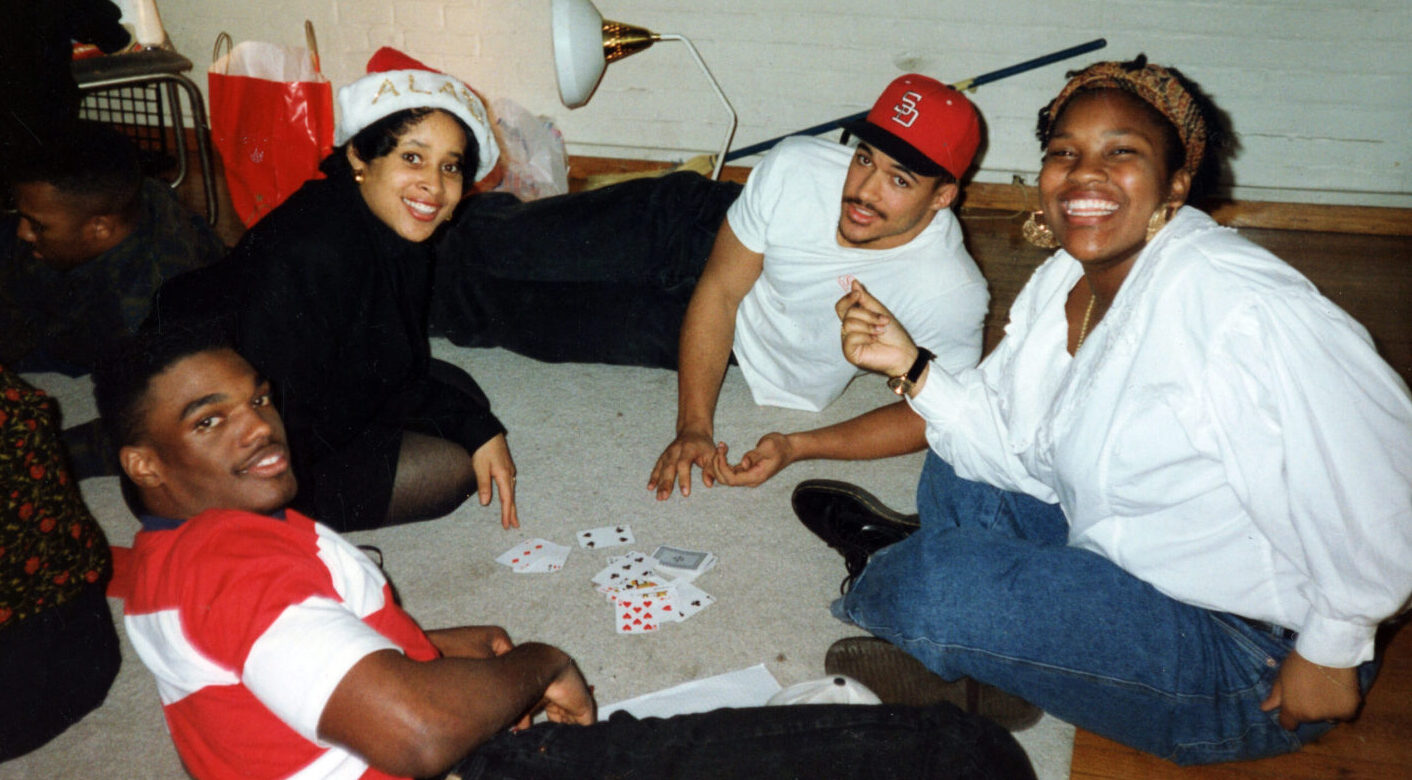
Tribeca Festival 2024 Review
Black Table – Documentary explores effects of Affirmation Action on Yale University Black Student Body
Affirmative Action came into being in 1961 when President John F. Kennedy, in response to the Civil Rights Movement, issued Executive Order 10925 to create measures designed to create racial equality. Tribeca Festival 2024 presented the World Premiere of the Spotlight Documentary Black Table which explored the impact of the policy and the resulting backlash in the hallowed halls of higher education.
Yale University had its largest enrollment of Black students in its history with the Class of 1997. Directors John Antonio James and Bill Mack take us on a voyeuristic class reunion through the eyes of a handful of black students who were a part of that historic class in their brilliant film Black Table.
Yale’s record setting class of Black students came from an array of diverse cities, social backgrounds and ethnic cultures.
Those admitted came from Harlem and Brooklyn, N.Y., lily-white suburbs in Connecticut and Virginia, small town rural America and places as far flung as St. Lucia in the Caribbean.
It is also significant that the year 1997 also brought the death of the Supreme Court’s first black justice Thurgood Marshall. This was a harbinger of the later unraveling of Affirmative Action by both the Supreme Court and society in general in the ensuing decades.
The term “black table” stems from the unofficial ‘caucus’ practiced by Black students at predominantly white universities around the country. Largely shunned by their white counterparts, Black students would congregate to share a meal, a few laughs and their experiences good, bad and indifferent in the midst of a sometimes-hostile environment.
Yale’s Black Table originated at The Commons, the university’s massive and imposing Dining Hall.
“Yale Commons was straight out of Harry Potter, ” said Class of ’97 grad Aimee Allen in the documentary.
“It was impressive, but it could also be intimidating.”
“There were so many of us who felt we were being treated differently because of our race,” said Diahann, Class of ’94.
“You had to take it upon yourself to provide the type of nourishing environment that the Yale campus generally didn’t provide.”
Class of ’97 grad Wesley Morris, whose name you may recognize as culture editor and writer for the New York Times put it succinctly. “The Black Table came about because we got sick of the fact that whenever a Black Student put down a tray, they couldn’t sit down without all the white students just getting up and sitting somewhere else!”
Thus, Black Table was born as both a metaphysical and metaphorical entity.
“There was no official flag planted anywhere that said, ‘this is the Black Table.’ It just sort of grew organically into this place where all of us could feel comfortable together.
“The Black Table was wherever I was,” Sheldon Gilbert said with a smile. “You could look off to the left at about three or four tables in and see this group of Black students all together laughing and talking.”
“I don’t know if it was one table or two or a whole bunch of tables pushed together, ” Wesley Morris pondered. “All I know is that somehow it would magically appear every day at lunchtime!”
Retired Yale dining hall second cook Gregory Williams said the cook staff was both in awe and frustrated by this mysterious phenomenon.
“Somehow, those big, heavy tables and chairs would get pushed together into one long horizontal table. The kitchen staff would all complain ‘they’re at it again!’ because they had to push all that heavy stuff back into place!”
Nuisance factor aside, the Black Table became a vital focus of Black student life.
“It was a place where we could ‘Cuss and Discuss’,” said ‘97 grad Nicole. “Black Table was an active construction. It was a place where you felt welcome in a place where no one greeted you with open arms and said ‘Welcome.’
“Black Table helped me to keep my sanity.”
Controversy over Affirmative Action began at its inception. In the film we hear news anchor Eric Sevareid intone the reigning sentiment of the time; “Affirmative Action programs have created another nightmare, frequently resulting in a new form of discrimination against brains!”
Once popular TV comic Dennis Miller chimed in “we have to decide if we’re a society based on merit or rooted in insanity!”
Enter Alan Bakke in the 1970s as the white student who sued the University of California at Davis because of his claim that he was denied admission to its Medical School because his place was given to a less qualified Black student.
The Bakke case brought about a change in the California State Constitution that banned race as a criteria for college admissions and gainful employment.
In June of 2023, in an historic decision, the U.S. Supreme Court effectively ended Affirmative Action by gutting all race-conscious admissions programs at colleges and universities
Yale’s Black Table and its occupants bore witness to many of the tumultuous events that rocked, ’90s America, the Rodney King beating, the L.A. Riots, the OJ trial.
Just as in the rest of society, there were cheers on the side of the room where the Black Table was when the OJ verdict came down and stony silence among the white students in the rest of The Commons.
“I felt that the Black Table was a source of comfort in the midst of all that,” Wesley Morris said.
“One of the things we have to recognize is that the United States remains a pretty segregated society,” said Spelman College President Emerita Dr. Beverly Daniel Tatum near the conclusion of the film.
“So if you are a white person, you have lived in a largely white community. You’ve attended white schools and that’s just normal for you. If you step away from that, you can wind up in a counter environment with people of a different racial or cultural background and that can have a discriminatory result.”
That’s just a fancy way of saying that as long as Black students feel ostracized and unwanted at white universities, there will always be a need for a ‘Black Table.’
The film is bookended by comments from 90 something year old Woody, Class of ’52.
“When I graduated, people asked ‘What kind of degree did you get, a B.S. or a B.A.?’
“I said ‘I got a B.A.A. Before Affirmative Action!’”
For more on the film, visit fifthseason.com and for more on Tribeca Festival 2024 visit tribecafilm.com.
READ ARTICLE ON THETIMES WEEKLY.COM
Tribeca Review: Black Table
By Katie Carter 1994 saw the highest number of Black students enrolled in Yale in the university’
Black Harvest Film Festival 2024: Black Table
By Brandon Towns Attending the Black Harvest Film Festival feels like a rite of passage—a celebrat
Tribeca Film Festival 2024
8 Highlights from This Year’s Event By Brian Tallerico The Tribeca Film Festival is nearly complet




